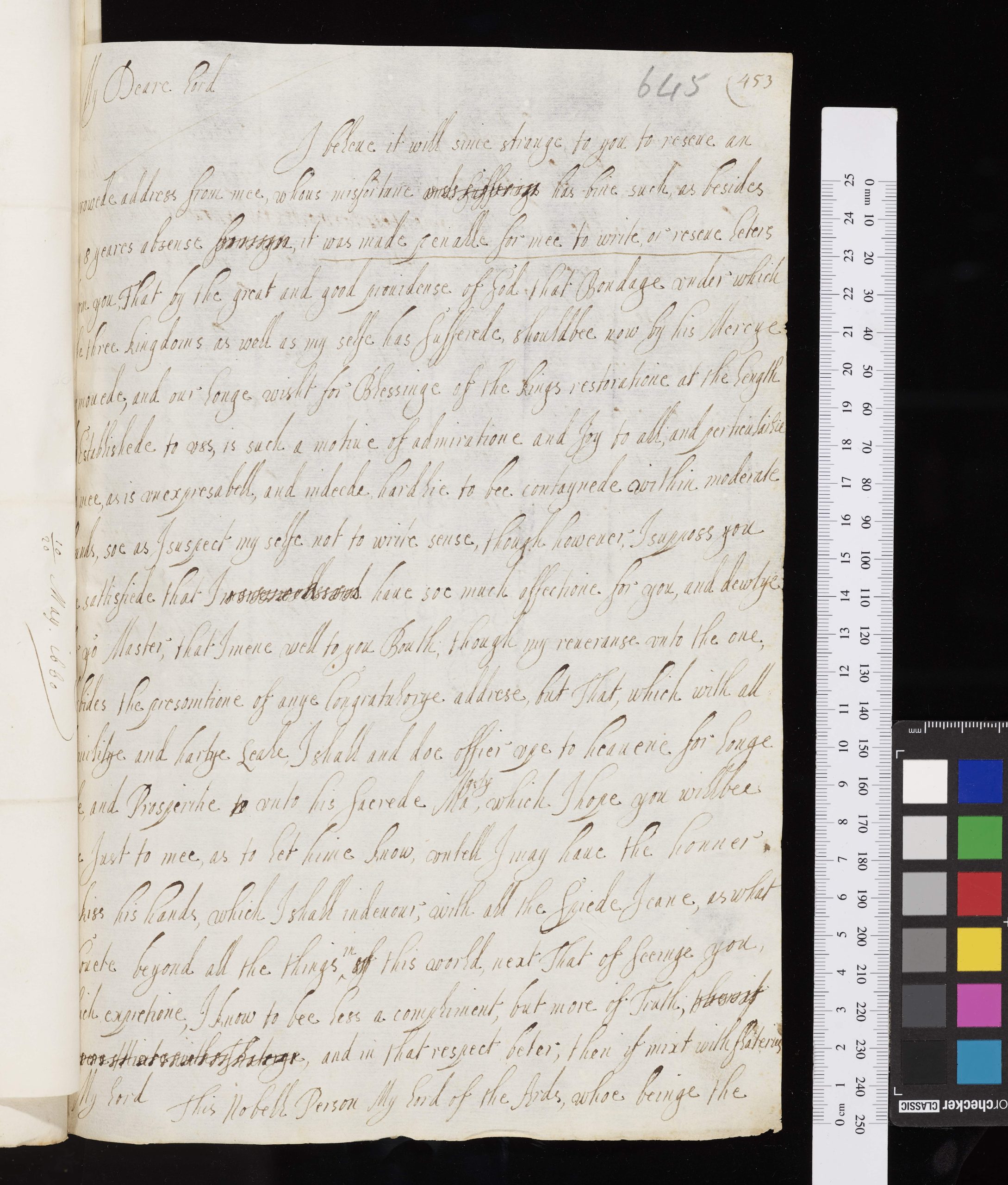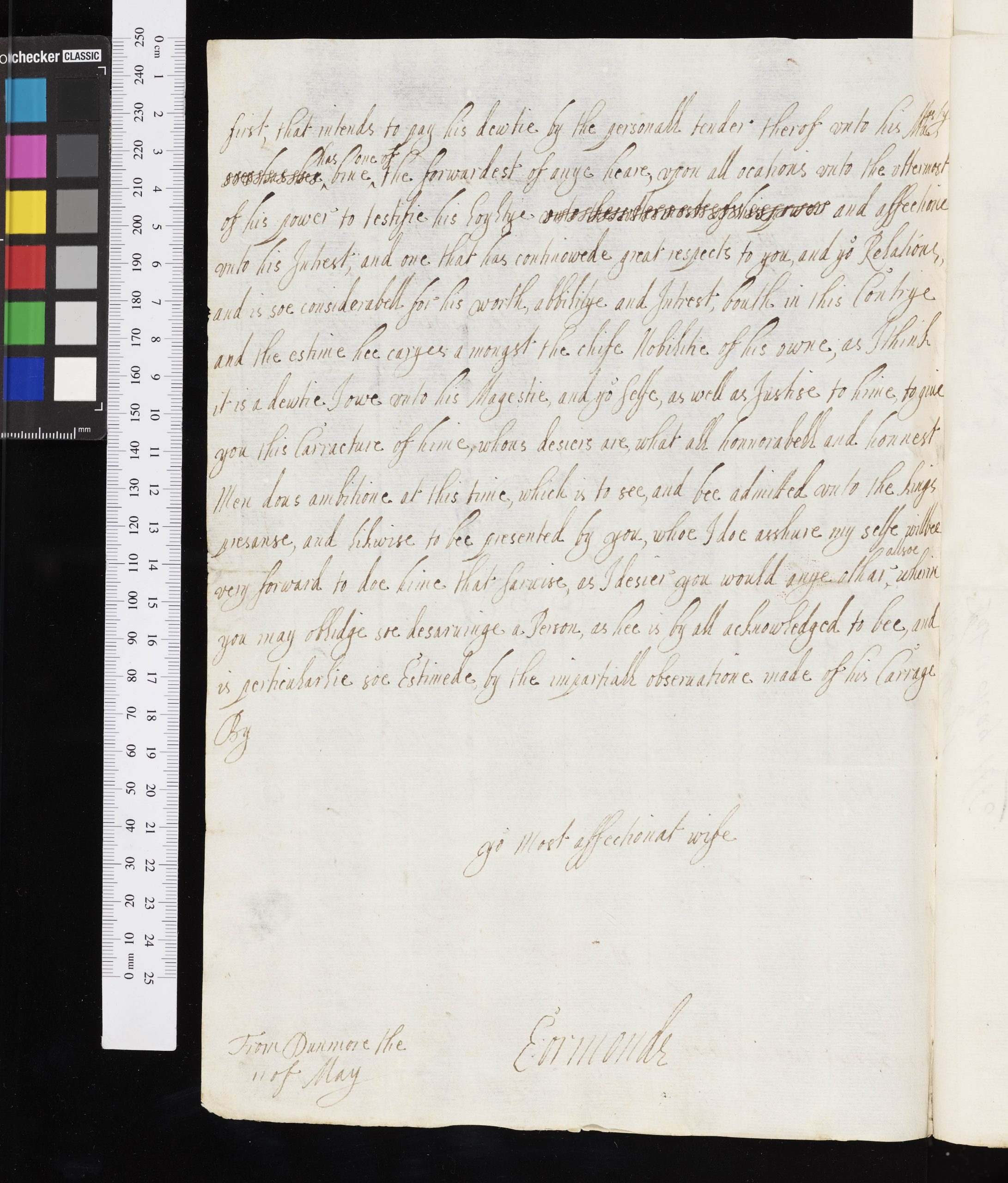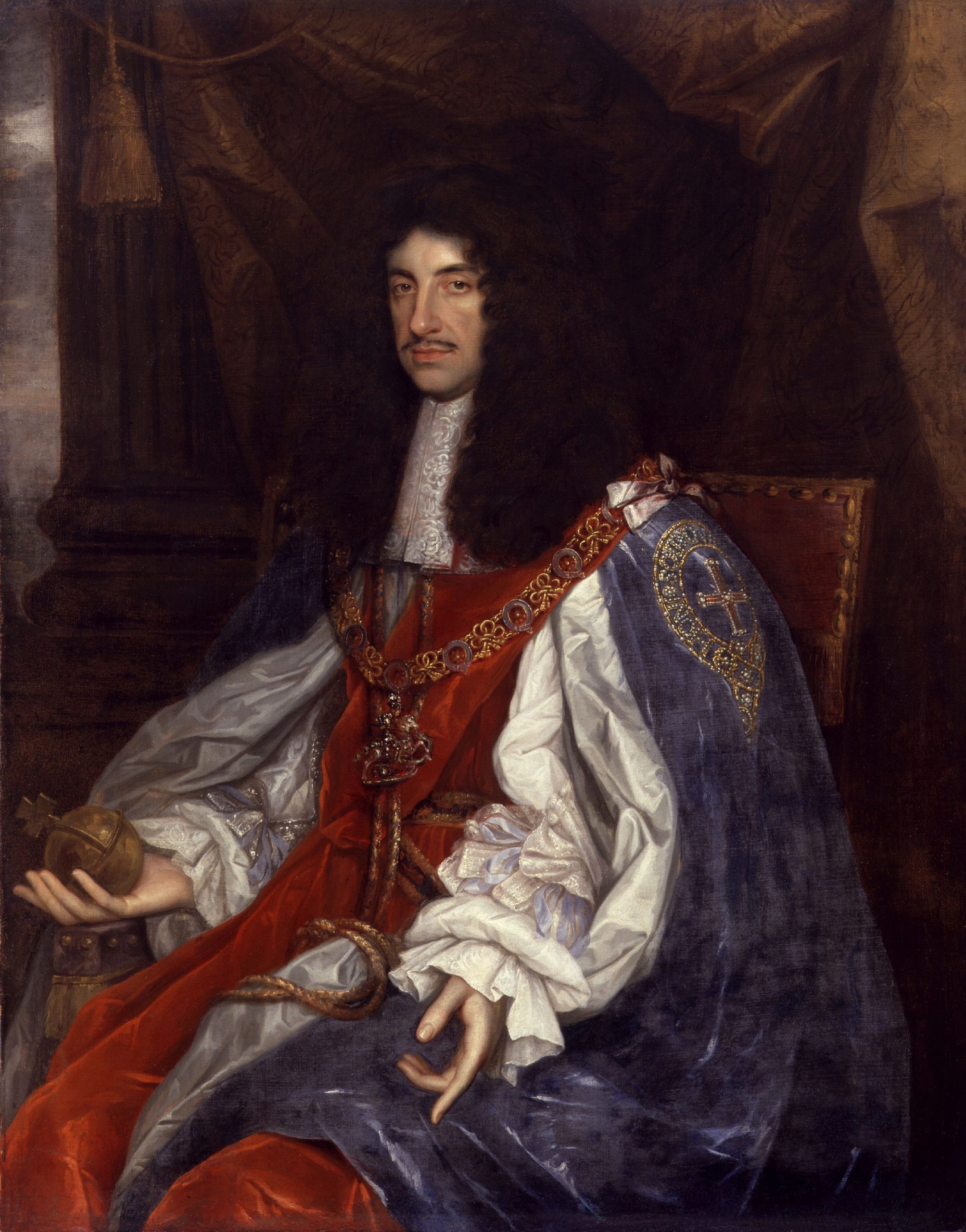11 May 1660
The marchioness of Ormonde – writing from Dunmore House – to her husband, the marquis of Ormonde
My Deare Lord
I beleve it will sime strange to you to reseve an avowede address from mee, whous misfortune and Sufferings has bine such, as besides my 8 yeares absense from you; it was made penalle for mee to write, or reseve Leters from you, That by the great and good providense of God that Bondage under which the three kingdoms as well as my selfe has Sufferede, shouldbee now by his Mercye removede, and our Longe wisht for Blessinge of the kings restoratione at the Length Establishede to uss, is such a motive of admiratione and Joy to all; and perticularlie to mee, as is unexpresabell, and indeede hardlie to bee contaynede within moderate [bo]unds, soe as I suspect my selfe not to write sense, though however, I supposs you [a]re sattisfiede that I mene well and have soe much affectione for you, and dewtye for your Master, that I mene well to you Bouth; though my reveranse unto the one, forbides the presomtione of anye Congratulorye addrese, but That, which with all humilitye and hartye zeale, I shall and doe offier upe to heavene for Longe life, and Prosperitie to unto his Sacrede Magesty, which I hope you willbee Soe Just to mee, as to Let hime know, untell I may have the honner to kiss his hands, which I shall indevour, with all the Spiede I cane, as what I Covete beyond all the things of in this world, next That of Seeinge you, which expretione, I know to bee Less a compliment, but more of Truth; then if it were Mixt with Flaterye, and in that respect beter, then if mixt with flateries
My Lord
This Nobell Person My Lord of the Ards, whoe beinge the first, that intends to pay his dewtie by the personall tender therof unto his Magesty, soe has hee has bine one of the forwardest of anye heare, upon all ocations unto the uttermost of his power to testifie his Loyltye unto the uttermost of his power and affectione unto his Intrest; and one that has continowede great respects to you, and your Relations, and is soe considerabell for his worth, abbilitye and Intrest, bouth in this Contrye and the estime hee caryes amongst the chife Nobilitie of his owne; as I think it is a dewtie I owe unto his Magestie, and your Selfe, as well as Justise to hime, to give you this Carracture of hime, whous desiers are, what all honnorabell and honnest Men dous ambitione at this time, which is to see, and bee admitted unto the kings presanse, and Likwise to bee presented by you, whoe I doe asshure my selfe willbee very forward to doe hime that Sarvise, as I desier you would anye othar allsoe wherin you may oblidge soe desarvinge a Person, as hee is by all acknowledged to bee, and is perticularlie soe Estimede, by the impartiall observatione made of his Carrage By
your Most affectionat wife
From Dunmore the 11 of May E:ormonde
Letters, such as this one, sent to her husband in the wake of the Restoration of Charles II in May 1660 reveal the ways the marchioness prepared for the changes that were coming to her and her family.
This is the first ‘avowed’ letter the marchioness sent to her husband upon hearing news of the Restoration of Charles II. She shares her joy at what this will mean for her family and friends. She is excited about reuniting with her husband and the royal court when it returns to London. She expresses her duty to the king and asks her husband to communicate this to him because she feels she cannot write to him directly. She feels distant and isolated from the court after her prolonged absence and depends on her husband to facilitate her re-entry to court circles.
Letters sent to her husband as the marchioness made preparations to join him in London express a combination of exhilaration, disorientation, and anxiety as she contemplates the seismic changes that the Restoration will bring her, her family, and the three Stuart kingdoms of England, Scotland, and Ireland. In other letters from this time, she worries about facing the hubbub of London after the relative peace and quiet of Dunmore. She insists that her eldest son and his new wife find their own home because she is used to a retired life and feels unable to have another family living with her. She is also worried about threats to the life of the king or the marquis himself from those who were unhappy with the Restoration.
Letters to her husband are mainly concerned with the distribution of patronage, and the marchioness takes upon herself the responsibility for recommending clients in Ireland to her husband in the restored court. She invariably cites her clients’ loyalty to her husband and the king, highlighting their role in maintaining the king’s interests in Ireland. She implies that she is best equipped to identify those Irish men who should be rewarded for loyal service. Often, she brings favoured clients to her husband’s notice as bearers of her letters, as she does here with Lord Ards.
This letter marks an important transition in the life of the couple as the balance of power shifted from wife to husband. The deferential space that was missing in the letters she wrote as ‘JH’ reappears in the letters she writes under her own name as she recommences her duties as wife.





